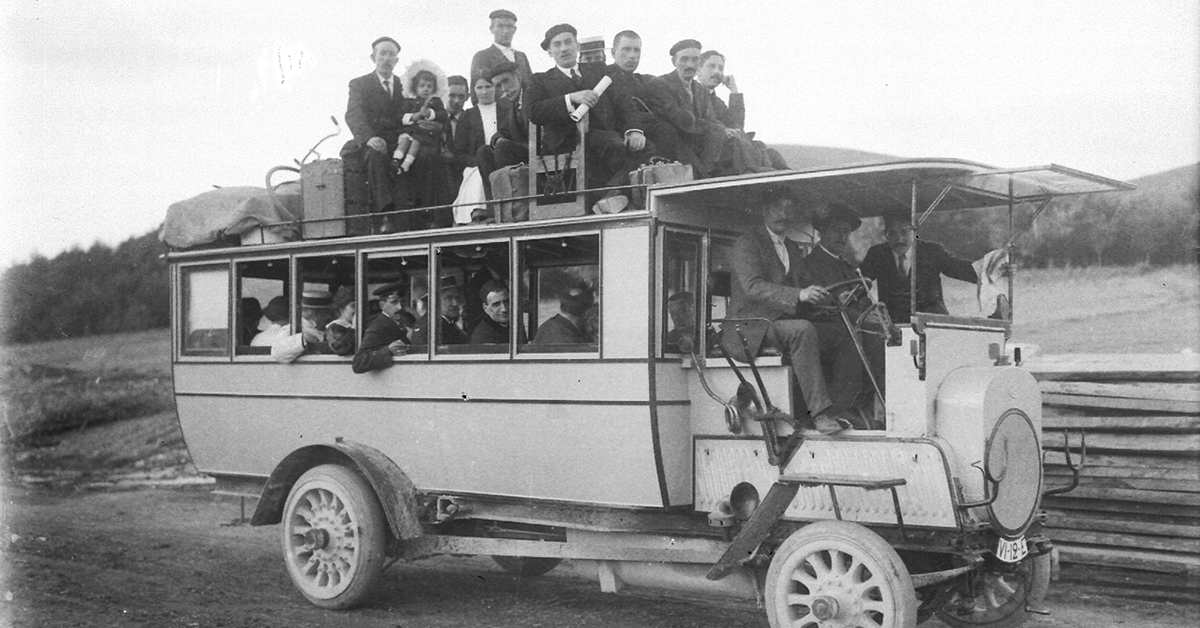Basque ethnography at a glance
Lexicon
We have left the lexicon for the end of this trilogy. The transmission of lexicon is very interesting between languages in contact. Three types of words can be distinguished. Firstly, there would be words that are not in the receiving language and that are taken from the sending language. In this case, certain names of things, ideas or concepts that did not exist in Spanish were taken from Basque, sometimes with phonological-phonetic adaptations, for example, calderapeco. You can also use common words due to their high frequency in everyday life. Secondly, some words that already existed in the receiving language are adapted, but not only phonetically, but also morphologically, syntactically or semantically, giving rise to curious hybrids, for example, erderakaso. Thirdly, new words also emerge that do not appear in any dictionary, such as chirene. But enough of words. Let’s go, without going into detail, to get to know some of those words that, although coming from Basque, were already inserted in the Spanish around Bilbao at the end of the 19th century, as well as others that arose from that linguistic relationship between Basque and Spanish.
Words taken directly from Basque
Amaiquetaco (lunch at 11:00), beguichindor (sty), beguisco (evil eye) (begizkoa egin: Haser beguisco Make evil eye), bersolari (person who sings bertsos), betiberba (chatterbox), biocherre (heartburn), biribilqueta (parade dance), caicu (wool jacket), caisio (hello), calderapeco (water bearer; literally the person who goes under the kettle), carramarro (crab), cococha (chin of the fish, usually cod or hake), coipachu (the lean bacon that goes inside the talo), coipesto (dirty, untidy), colco (bosom) (Ese cohorro morir se va a haser sino le metes en el colco… That cohorro is going to die if you don’t put it in your bosom…), contracosulo (through the trachea: Irsele a uno por contracosulo Going to one by the contracosulo), cui (guinea pig), curruscu (tip of bread), chacolí (white wine of Basque origin), chalaparta (Basque percussion musical instrument), chalo (clap, slap), changurro (spider crab), chindor (robin), chiquito (pot of wine), chirla (small clam), chistorra (Basque sausage), chistu (wind musical instrument of Basque origin), chocho (cabin boy), dindirri (the mucus candle), ganorabaco (insubstantial), garrico (girdle), gauchori (reveler who likes the night), guiarra (lean bacon), goitibera (kind of cart without engine of Basque origin), gorringo (egg yolk), gurpil (the effect given to the ball), inchaursalsa (Basque nut-based dessert), irrinchi (loud and prolonged Basque cry that indicates euphoria or alert), lastana (affection), larri (sad), laubegi (goofy), lochabaco (scoundrel), lolo (sleep), magurio (snail of sea), mamarro (dumb), mendigoisale (wool jacket with tassels), morrosco (healthy and robust young man), moscorra (drunkenness), narru (skin), nasteborraste (hodgepodge), neque (work, sorrow, affliction ), ondaquin (waste), ordago (all or nothing in the game of mus), pa (peck), pacharán (sloe liqueur typical of Navarra), pil-pil (sauce blended with gentle boil), porrusalda (leek soup and potato), quilicolo (walking with discomfort), quiliquili (tickling), sacadís (wearing shoes in flip-flops, loose at the back), saguchu (mouse), sanso (Basque shout of joy), sapaburu (tadpole), saparrada (downpour), sapasto (manes), sasquel (dirty), sensaina (babysitter), sensumbaco (insubstantial), sereguinchu (small task), sirimiri (drizzle typical of Bilbao and the Basque Country), sirón (slowworm), sorqui (rolled scarf that the kalderapeko wore on her head to adjust her load), sorristo (lousy), sugalinda (sugandila; lizard), talo (corn flour pancake typical of the Basque Country), uguerdo (dirty), urcullu (stick finished in a V shape, to hold the packages when walking and stopping to rest).
Hybrids between Basque and Spanish
Aguaduchu (flood), agustina (a buztina, red clay: Tapa el bujero con barro de agustina Cover the hole with agustina mud), alatúber (arat-uger; swim on your back; literally, swim upwards), alepo (in your arms; Tómale alepo a ese mañoso Take alepo that crafty child), alperron/a (lazy), aparimerienda (snack-dinner), aprovechategui (freeloader), arribolas (boulders), bocho (hole), botillero (helper, trainer), cacanarru (small, dirty and unpleasant), cansagarri (tired), coipelustre (dirty person), comenensias (comforts; ¡Muchas comenensias le pide el cuerpo! her/his body asks for many comenensias!), chapichusqui (disheveled in the dress), chenche (child), chimbera (shotgun to kill chimbos), chipirón (cuttlefish), chosna (removable tent-tavern used in parties), danbolintero (drum player), erderacaso (Castilianism), gacho (difficult to do: ¡Eso está muy gacho! That’s very difficult!), gangarr@ (pride, with little common sense and lazy), iñusente (silly), isentar (name; ¡Ya isentaremos eso y mucho más pa que les conosca la gente! We’ll settle that and much more so that people know them!), macalla (cod), maña (mime whining), marmear (grumping or whispering), mojojones (mussels), murco (stern, stubborn), olgar (to play), ostiñar (to steal), pichín (dear), pirrilera (diarrhea), plasta (annoying), pocholo (adorable), quiñar (stir up), saltamachino (grasshopper), sapi (voice to scare away the cat), saramero (person who collects garbage), sinsorg@ (person who speaks without grace), solitaña (ladybug), sustanchibaco (insubstantial)
New words emerged in the Bilbao environment
Cochorro (a type of insect), curda (drunkenness), cutifarra (apron), chabisqui (tavern), chana (apple), chastabeo (arrangement, fix), chibo (swing), chirene (funny, prankster, eccentric), choto (high, grotesque and pointed cap), engoitar (deceive with flattery), guiri (foreign tourist), isar (stir up a dog; ¡Isale a ese! Get out to that one!), jebo (stocky villager with rough manners), lascar (drop money: ¡Ya le hemos hecho lascar al amo para una merienda! We have already made the master spend money for a snack!), meco (weak person with little character), muble (mullet; a type of fish), puchurrusquillas (literally puff donuts; an imaginary thing… when the children approached out of curiosity to someone, you said to them to make them leave: ¿Qué queréis… puchurruskillas? What do you want… puchurruskillas?… and they left at once), sirinsirin (an inclined plane, along which the kids ran while playing).
This is what this topic has given of itself. Today, fortunately, Basque is being revitalized throughout Bilbao and its surroundings. Let’s see if one day it acquires the strength and splendor it once had. So be it.
Joseba Santxo Uriarte – Philologist and researcher


